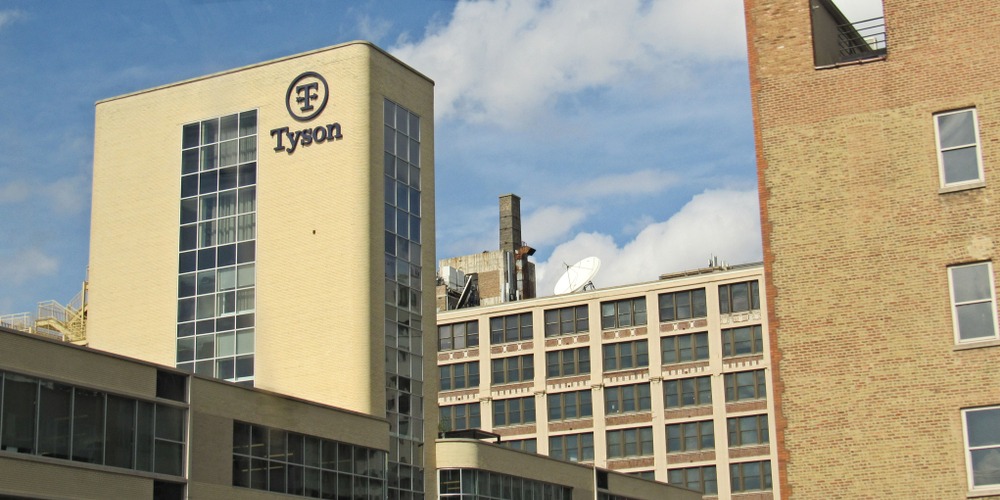
Tyson Foods buys stake in struggling Malaysian halal poultry business as it faces shareholders at home over human rights
United States’ biggest meatpacker by sales, Tyson Foods, has extended its halal reach by buying a 49% equity stake in the poultry business of Malayan Flour Mills.
The Malaysian company sold its wholly-owned subsidiary Dindings Supreme Sdn Bhd to Tyson Foods for 420 million ringgit ($104 million), the company said in a regulatory filing.
“This partnership will add more supply flexibility for both companies in serving halal-certified poultry to consumers and customers in the country and across priority export markets,” Chris Langholz, Tyson’s International President said in a statement on Wednesday (Feb 10).
Tyson Foods currently operates one plant and one innovation centre in Malaysia. Its vertically-integrated poultry business includes feed mills, hatcheries, farms and processing facilities.
Dindings Supreme Sdn Bhd was recording falling gross profits year-on-year from 2017 to 2019 mainly due to limited capacity of the processing plant of 90,000 birds slaughtered per day and low efficiency from outdated machinery and low automation, said Malayan Flour Mills.
One of its plants picked up speed to 280,000 birds slaughtered a day in February 2020 after an expansion of its facilities and increased automation but its utilisation rate remains lower than optimal and “has yet to achieve the intended economies of scale”.
Malayan Flour Mills said working with Tyson as a “strategic investor” will give it the opportunity to “harness Tyson’s global distribution network and technical expertise in poultry integrated operations.”
One of the aims of the Tyson deal is to increase the Malaysian unit’s variety of halal-certified products, complemented by the American firm’s processed foods technology.
HUMAN RIGHTS QUESTIONS
At home, Tyson Foods will face shareholders in a meeting on Thursday (Feb 11) to address a proposal, among others, for it to report regarding human rights due diligence.
This is the third year the proposal is filed, by the American Baptist Home Mission Society and 22 co-filers that include Christian religious organisations and BMO Asset Management. Last year it received 14.58% support overall and 59.68% support from independent investors, according to a document from the Investors Advocates for Social Justice.
The proposal this year addresses “weak worker health and safety protections, along with fear of retaliation for speaking up about health and safety issues”. The document cited 12,275 Tyson workers contracted COVID-19 and 39 have died.
Additional human rights impacts associated with Tyson’s business include racial discrimination, adverse impacts on community water resources, and human rights risks in the supply chain, said the document.
“Tyson has failed to provide evidence that its codes and procedures are effectively implemented,” it added.
Other shareholders have also asked questions of the company.
The New York City Retirement Systems, a long-term Tyson shareholder, spoke out about “materially false or misleading information regarding Tyson’s response to the global COVID-19 pandemic”.
“In March and early April 2020, Tyson did nothing while every industry in the U.S. was making changes to keep workers safe and while cities and states were closing businesses to keep the public six feet apart. Tyson took action only after employee advocates alerted the public and the media how COVID-19 was spreading through the industry like wildfire, and after Tyson had to close several plants because it no longer had available workers,” said the Comptroller of the City of New York in a strongly-worded letter to the U.S. Securities & Exchange Commission on Dec 15.
It added that Tyson’s health and safety record was “problematic” even before the pandemic began. “The poor record and weak safety practices caught Tyson unable to respond quickly and effectively as the virus spread through its plants. Put differently, Tyson’s economic success and sustainability are dependent on a healthy workforce.”
Salaam Gateway has reached out to Malayan Flour Mills Berhad for comment but did not receive a response via email at the time of publication, while calls to the company on Thursday were unanswered.
© SalaamGateway.com 2021 All Rights Reserved
